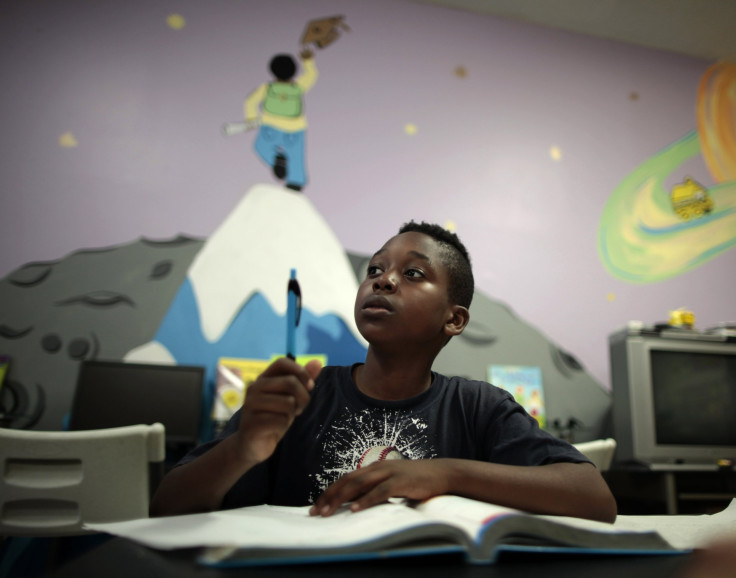Early Childhood Education That Focuses On Executive Function Improves Later School Performance

Science is beginning to show more than ever that a child’s performance in school is largely dependent by how much they know prior to beginning kindergarten. According to a report from the Economic Policy Institute, children from lower socioeconomic backgrounds score 60 percent lower in cognitive tests than kids with richer parents. When it comes to math scores, poor black kids score an average of 21 percent lower than whites, while Hispanics score 19 percent lower. Pre-K and kindergarten classes are meant to balance these disparities, but curriculums and resources often vary between poorer and richer schools.
A new curriculum from Tools of the Mind, a research-based education program, could bring these gaps to the same level, according to a recent study, by teaching kids “self-regulation.” Instead of rewarding kids for only following teachers’ instructions, this approach also encourages kids to work together on projects (no matter their economic background), encourage each other’s learning, and provide constructive feedback.
Along with these community-building techniques, the kids are also taught to identify, correct, and reflect on their mistakes; and how to “plan scenarios that build and change as the play progresses” during make-believe exercises. As they transition from Pre-K to kindergarten, make-believe turns into literature-based learning, and they learn executive functions critical to improved long-term performance, such as language, attention, memory, and social skills.
“Working memory and the ability to control attention, both important components of executive functions, enable children to focus and process information more efficiently,” said Clancy Blair, a professor of applied psychology at New York University’s Steinhardt School of Culture, Education, and Human Development, in a press release. “Our results suggest that a combined focus on executive functions, and early academic learning provides the strongest foundation for early success in school.”
For the two-year study, which focused on kindergarten learning only, researchers looked at 759 students attending 29 Massachusetts schools, and compared the level of learning in classrooms with Tools of the Mind’s curriculum to those with a normal kindergarten curriculum. Along with that, they also measured the kids’ cortisol and alpha amylase levels in their saliva to see how stressed they were during class.
Executive functioning is a range of mental processes that help a person apply past experiences to current problems, evaluate ideas, avoid distractions, multitask, shift attention, set priorities, and resist impulses. The researchers found that kids who underwent the Tools of the Mind curriculum performed far better than their typically educated counterparts, which translated into better scores on math, reading, and vocabulary, and carried over into first grade. These kids were also more stressed — though not necessarily in a bad way — indicating they were more engaged.
The researchers suspect that if these benefits can carry over into first grade, they may carry over into subsequent grades as well. Other research, albeit on the effects of pre-K and kindergarten, supports this. One report from the Center for Public Education found that poor Hispanic kids who attended Pre-K and a half-day kindergarten rather than only full-day kindergarten were 20 percent more likely to reach an advanced level of reading by third grade. According to another report from Arizona State University and the University of Colorado, children who attended both were more likely to graduate high school, to be employed at 40 years old, and less likely to be arrested by age 27.
“To date, decisions about the most effective ways to foster learning in early childhood have not fully capitalized on advances in the neuroscience on executive functions, particularly for children in poverty,” said C. Cybele Raver, another professor of applied psychology at NYU Steinhardt, in the release. “The ability to control impulses, and regulate behaviors and emotions, is a critical function to build into early childhood education, ensuring children’s success in both gaining knowledge and learning life skills.”
According to the National Center for Child Poverty, there are 11.4 million children under 6 living in the U.S. in low-income or poor families. Of these kids, 12 percent live in extreme poverty. They face challenges in life that go further than education and money, such as parental abuse and addiction. Giving them a proper education to break away from these lifestyles is critical.
Source: Blair C, Raver C, et al. PLOS ONE. 2014.



























